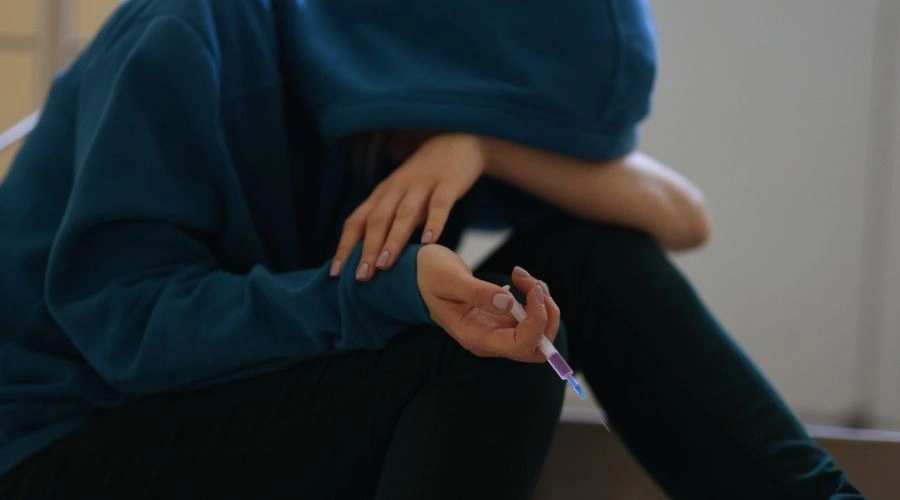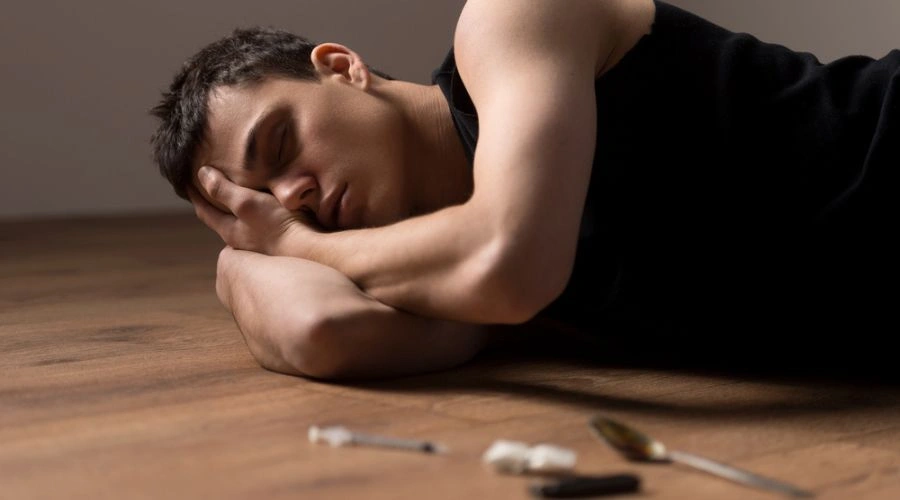What is the Relationship Between Meth Abuse and Bipolar?
Treating meth addiction on its own is a difficult path to walk, especially by yourself. Unfortunately, it can be even harder if you have co-occurring mental health disorders like bipolar disorder. What is the link between meth addiction and bipolar disorder, and how can you get help for both of them when you need it?
Bipolar disorder is characterized by extreme highs and lows, mimicking the effects of meth use. People will often take more meth to control the crash or depressive episode that follows a euphoric high. The interplay between bipolar and meth abuse can lead to heightened cravings, more impulsivity, and even psychosis if left untreated.
South Shores Detox allows you to have a safe space to cope with your withdrawal symptoms and your bipolar disorder. We offer a comprehensive clinical assessment and help you take the first steps toward sober living.
Keep reading to learn more about how these two diagnoses overlap and how to approach treatment for both effectively.
Understanding Bipolar Disorder and its Subtypes
Before diving into the link between meth addiction and bipolar disorder, it’s important to understand each on its own. Only a professional can diagnose bipolar disorder, but you can be aware of what the symptoms are to express your concern to a qualified clinician.
Bipolar Affective Disorder: Manic Episode and Depressive Episodes
Having bipolar disorder is about more than just constant mood swings. While this is indeed a mood disorder characterized by highs and lows, it is much more complex than that. Instead, you’ll have a rotation of depressive episodes with a manic episode, with some periods of normalcy in between.
Depression takes you quite low and could result in suicidal thoughts or feelings. A manic episode is a bit harder to understand, but it involves feeling grandiose, having increased energy, taking more risks, and not needing to sleep as much. In other words, it could mimic the effects of meth use.
These mood swings last for more than just a few hours. Depressive episodes can last for weeks at a time, and manic episodes can last for several days or weeks.
Bipolar I or Bipolar II Disorder: The Difference Between Manic and Hypomanic Episodes
It’s also important to understand that there are two categories of bipolar disorder: bipolar I and bipolar II disorder. Both will have depressive symptoms, but only bipolar I will have a full-blown manic episode. Instead, people with bipolar II will have hypomanic episodes.
A hypomanic episode is still a sign of mental illness that should be treated, but it is milder than a manic episode. You’ll experience a decreased need for sleep, inflated self-esteem, a positive mood, and an increased risk of impulsive behavior.
However, it won’t be as extreme and typically doesn’t last as long, with episodes needing to last at least four days.
The Connection Between Bipolar Symptoms and Meth Abuse
When it comes to addiction, bipolar disorder can exacerbate the symptoms of manic and depressive episodes. But what exactly is the link between psychiatric disorders and the use of methamphetamine?
Taking meth stimulates the central nervous system, which allows it to mimic many bipolar symptoms seen in manic episodes. In particular, meth creates a flood of key neurotransmitters like dopamine, serotonin, and norepinephrine. All of these neurotransmitters play a crucial role in mood regulation, and the influx can imitate a manic episode.
The problem is that eventually these substances clear your system. The result is a sharp crash in these neurotransmitters that can trigger depressive episodes in people with a mood disorder.
In other words, your treatment options for co-occurring bipolar disorder will be less effective as long as you continue your substance abuse. The drugs will continue to stimulate the brain in counterproductive ways even as your psychiatrist aims to limit mood swings.
Worsening Bipolar Depression, Anxiety Disorders, and Other Diagnoses
Of course, mania isn’t the only risk when it comes to methamphetamine dependence. Any psychiatric symptoms you may experience as part of a dual diagnosis can be heightened with substance use. This includes anxiety disorders that may coexist with your bipolar depression.
Anxiety is one of the most common complaints for people who are actively taking methamphetamines. It is also one of the most common comorbid diagnoses in people with bipolar disorder.
All of this means that you may need to consider not only the symptoms of bipolar disorder but also the symptoms of anxiety when finding reasons to give up meth abuse or meth addiction.
Overlap in the Symptoms of Bipolar Disorder and Substance Use Disorders
With so much overlap seen between the two conditions, how do you tease out when someone has true bipolar disorder and when they struggle only with meth addiction? These are some of the ways that the symptoms can overlap, making it hard for a clinician to tell them apart.
Intense Cravings Heightened
Take a minute to think about the cycle of methamphetamine use disorder. You take the drug to feel high but then crash when it leaves your system hours later. This closely mimics the cycle of bipolar disorder, where you have intense highs and depressive lows. Most people would love to stay in that mania and will do what it takes to get back there when their depression strikes.
The problem is that most people will want to take more meth when confronted with that low.
In other words, their cravings will peak when depression strikes, which triggers an increased risk of use. The cycle of cravings keeps you mired in mood swings, making bipolar disorder harder to control. These intense cravings can lead you to try to self-medicate bipolar symptoms.
Impulsivity Leads to Increased Meth Use
When you have bipolar disorder, meth use can be a part of your impulsivity. Both mania and hypomania lead to a sharp increase in impulsive behaviors. This suggests that you may have a harder time resisting the siren song of methamphetamines. Your brain doesn’t think through the consequences of losing your sobriety, reflecting only on the present moment.
The result is that you are more likely to fall into patterns of your substance abuse until bipolar symptoms are more under control.
Increased Risk Factors for Psychosis
Perhaps the scariest symptoms of bipolar disorder and methamphetamine use disorder are the ones related to psychosis. Both can trigger a disconnect with reality and result in psychosis, where you see, feel, hear, and experience things that aren’t really there.
Your risk of experiencing this extreme symptom of both dramatically increases when you take meth to control your mood swings.
Treatment for Mental Health Disorders and Meth Addiction
At a certain point, you will need to consider substance abuse treatment options to get the help needed to live life sober. Here are a few of the options that are available to you to get the help you want.
Detox for the Early Days of Recovery
For most people, the first days and weeks without their meth addiction are going to be the hardest. Your body and brain tell you that you would feel much better if you had more, but you will need to stand strong during this time. The best thing you can do is enroll in a detox program.
At South Shores Detox, you’ll be safe from the risk of using again once you enter our doors. We keep you comfortable in a luxurious environment and offer you around-the-clock access to support from a team of psychiatrists, doctors, medical staff, and counselors.
We can also offer medication-assisted treatment that will make you more comfortable as your body adjusts to life without drugs. These may not be permanent arrangements, but they can be a great temporary measure to get you through the worst of the first few days without meth.
Enroll in Dual Diagnosis Treatment Options
If you suspect that there may be more going on than just your drug use, you should consider a facility that specializes in dual diagnosis treatment. This enables your team of professionals to consider your needs from a holistic perspective, giving you the tailored treatment needed to thrive.
Our team will give you a comprehensive clinical assessment so that we can see more clearly what you need from us and give you the help you require right away. We can offer counseling and psychiatry to shore up your mental health while you get used to life sober.
Psychiatry for Treating Bipolar Disorder
Unfortunately, bipolar disorder isn’t something that’s going to go away on its own. If you want to start to control the symptoms of the mental illness, you’ll need medication to support you. There are lots of options for medicating bipolar symptoms, so you’ll want to work with an experienced psychiatrist like those found at South Shores.
From mood stabilizers to anti-epileptic drugs, there is no shortage of options. Plus, you’ll be under the careful monitoring of a team of medical staff in detox and residential care so that your symptoms and condition are observed 24/7 to ensure we find the right fit for you.
Cognitive Behavioral Therapy, Dialectical Behavioral Therapy, and More
Long-term recovery requires a new approach to your usual triggers. Any co-occurring disorders or mental disorders require their own treatment alongside substance abuse. Cognitive behavioral therapy (CBT) and dialectical behavioral therapy (DBT) are two of the most helpful treatment modalities.
CBT allows you to examine the interplay between your thoughts, feelings, and actions. You’ll start to identify the thoughts and feelings that trigger your meth use and leave you with worsening manic symptoms. If you can interrupt your trigger early on in the cycle, then you may be able to make a new choice to remain sober.
DBT equips you with the skills needed to cope with uncomfortable feelings. You’ll practice mindfulness, which allows you to observe your thoughts without judgment and simply let them pass you by.
Holistic Treatment for Mood Episodes
Of course, it isn’t always about medication or therapy. Sometimes, you just need to get out of your head for a little bit. This is why you should consider a detox program or rehab that specializes in holistic care. You might engage in yoga therapy, art therapy, music therapy, and more in addition to your clinical care.
This gives you a sampling of different coping strategies you can use when you leave a detox program and can equip you with skills to stay sober. It’s not a substitute for psychiatry, but can be a great add-on to your clinical care.
Transition from Detox to Residential Care
Our detox program is a great first step for when you experience extreme withdrawal symptoms from your meth use. We can make you comfortable during those early days of sobriety and prevent you from using again, even when cravings strike. However, it isn’t a long-term option, with most people staying for only a week or so.
Instead, you’ll want to look for a program that allows you to make an easy transition to residential care for a long-term recovery. These programs typically last for thirty to ninety days, giving you space to dive deep into your reasons for using and sharpening your skills so that you can return to your life with the confidence that comes with knowing you can stay sober.
Get Accredited Support at South Shores Detox Today
Are you ready to finally face your bipolar disorder and co-occurring substance use disorder? South Shores Detox is ready and waiting to help you take those difficult first steps to get sober. Our team of experienced clinicians and medical staff keeps you safe and comfortable during the transition away from substance use.
South Shores Detox is an accredited facility that meets all your possible needs alongside luxurious accommodations. You’ll have a comfortable room, access to therapeutic activities, and more from the best location in sunny Southern California.
Let our enrollment team answer your questions and verify your insurance benefits in a quick and confidential phone call today so you can start healing!
References
- Jain A, Mitra P. Bipolar Disorder. [Updated 2023 Feb 20]. In: StatPearls [Internet]. Treasure Island (FL): StatPearls Publishing; 2025 Jan-. Available from:
- Dailey MW, Saadabadi A. Mania. [Updated 2023 Jul 17]. In: StatPearls [Internet]. Treasure Island (FL): StatPearls Publishing; 2025 Jan-. Available from:
- Kish S. J. (2008). Pharmacologic mechanisms of crystal meth. CMAJ : Canadian Medical Association journal = journal de l’Association medicale canadienne, 178(13), 1679–1682.
- Glasner-Edwards, S., Mooney, L. J., Marinelli-Casey, P., Hillhouse, M., Ang, A., Rawson, R., & Methamphetamine Treatment Project Corporate Authors (2010). Anxiety disorders among methamphetamine dependent adults: association with post-treatment functioning. The American journal on addictions, 19(5), 385–390.
- Ott C. A. (2018). Treatment of anxiety disorders in patients with comorbid bipolar disorder. The mental health clinician, 8(6), 256–263.
- Glasner-Edwards, S., & Mooney, L. J. (2014). Methamphetamine psychosis: epidemiology and management. CNS drugs, 28(12), 1115–1126.
- McHugh, R. K., Hearon, B. A., & Otto, M. W. (2010). Cognitive behavioral therapy for substance use disorders. The Psychiatric clinics of North America, 33(3), 511–525.
- Dimeff, L. A., & Linehan, M. M. (2008). Dialectical behavior therapy for substance abusers. Addiction science & clinical practice, 4(2), 39–47.





